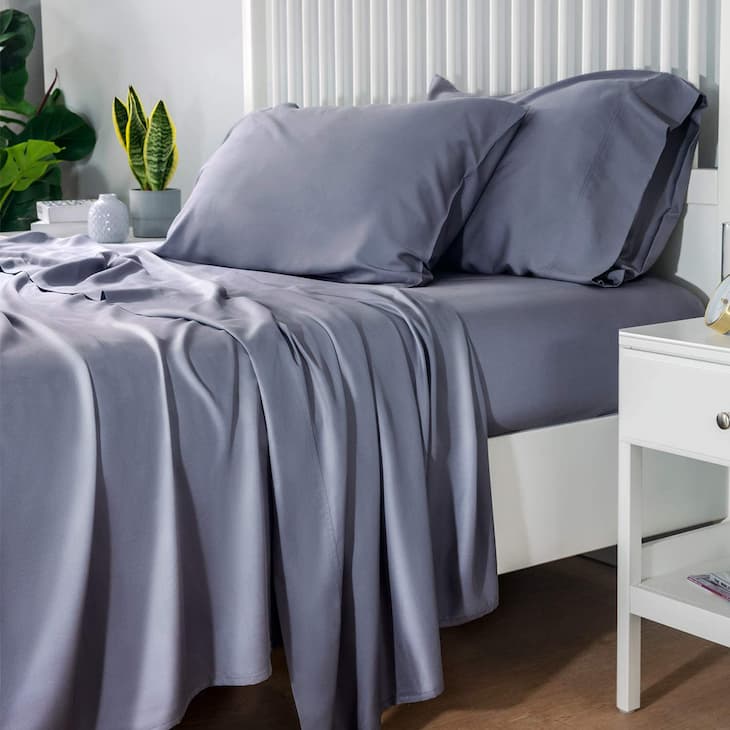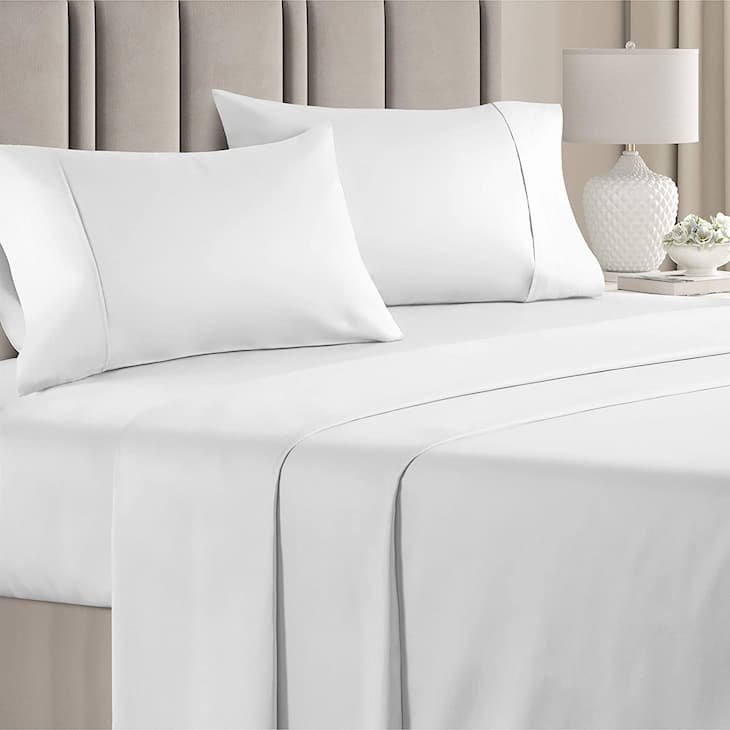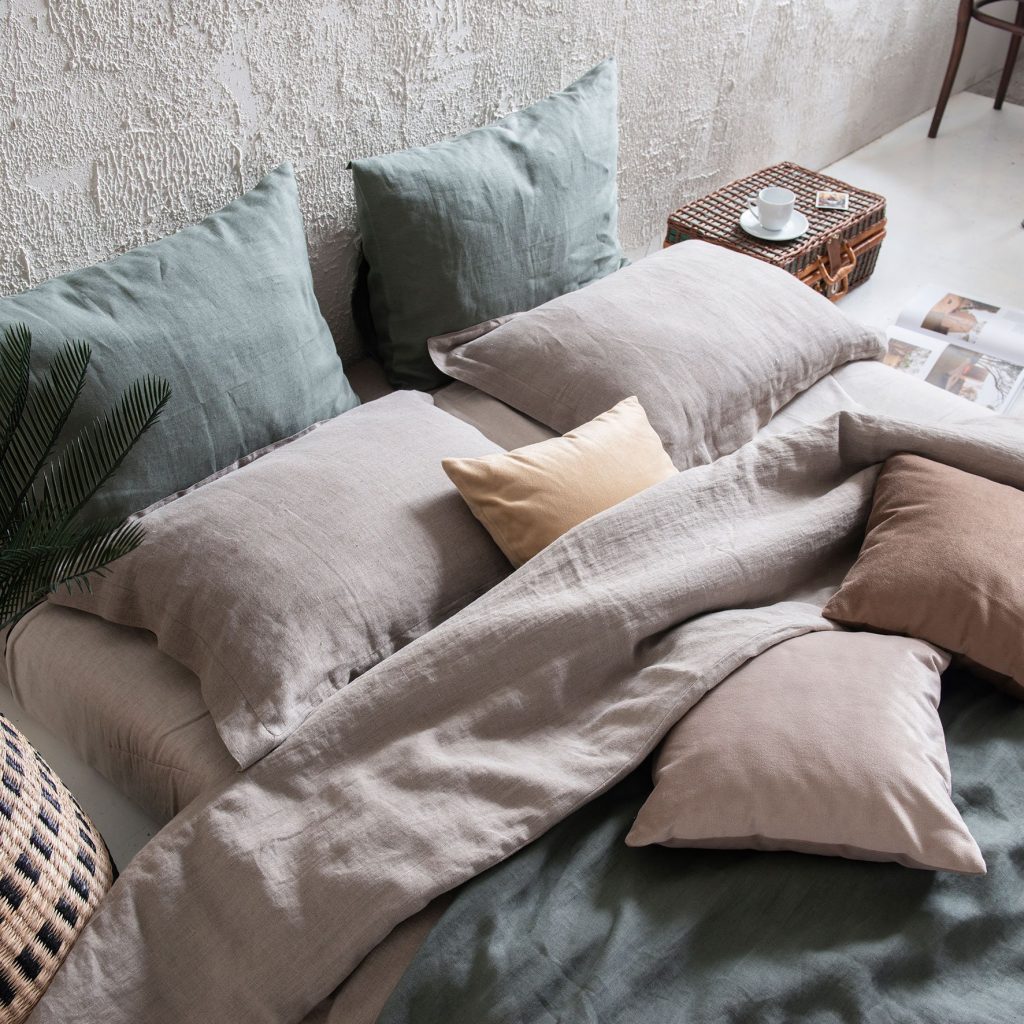Investing in some high-quality sheets can make a substantial impact on the quality of your sleep. Perhaps not as much as selecting the finest mattress and pillow, but still important. Bedding that feels good against your skin, washes effectively, and breathes well can provide for a lot more comfortable night’s sleep.
Consider the Types of Fabric
Bamboo

Quality bamboo sheets are the latest craze and are quickly increasing in popularity since the material has become the go-to fibre for all kinds of sleep-related products, including pillows, duvets, mattress toppers, and more. Bamboo is reconstructed into one of three more recognizable types of material: bamboo rayon, bamboo lyocell, and bamboo linen.
Bamboo grows incredibly quickly, therefore one area can produce ten times the amount of bamboo as cotton. Furthermore, not only does it consume significantly less water, but it also saves water. Depending on the species of bamboo, it also requires significantly fewer pesticides to grow and consumes far fewer chemicals to process. As a result, it has a substantially lower carbon footprint than most materials. However, because of the chemicals used to refine bamboo fibre, it is not completely pollution-free.
If you tend to sleep overheated, organic bed sheets made from bamboo might be the solution you were looking for good night sleep. One of the most important advantages of these sheets is that they are extremely breathable. Moreover, bamboo has excellent temperature regulating characteristics, so the bedsheets are meant to keep you cool on hot summer nights and warm on cold winter nights. They’re also hypoallergenic, environmentally friendly, and exceptionally breathable. The icing on the cake? These sheets may be the softest bedding you’ve ever slept on!
Cotton

Cotton is created from fibres extracted from the cotton plant and spun into yarn or thread. It has a soft and velvety feel to it, and because it is made entirely of natural materials, it is hypoallergenic, making it an excellent choice for anyone with sensitive skin. It’s also incredibly breathable and long-lasting material. Cotton quality has long been measured in thread counts, and it is often assumed that the higher the thread count, the better. However, this is not always the case.
Worth noting, manufacturers have been known to sometimes artificially increase the number of threads counted. Second, the more threads there are, the tighter the weave, which can impede airflow and attract moisture. As a result, having a high thread count can be detrimental to persons whose bodily temperature runs hotter at night, which isn’t the case when using thermoregulating sheets made from bamboo.
Egyptian cotton sheets are regarded as the gold standard in cotton bedding because the cotton strands produced by these plants are longer, and have a softer, luscious feel. It is important to note that the term “Egyptian” refers to the type of plant from which the cotton is derived rather than the country.
If your budget does not allow for Egyptian cotton, consider Supima, a quality, silky cotton that is gaining popularity. The bad news is that no matter what type of cotton you choose, it is not good for the environment. This is primarily due to the plant’s reputation for requiring a lot of water to farm. According to the WWF, producing 1kg of cotton requires 20,000 gallons of water: enough to make a single pair of jeans and a T-shirt.
Linen

Linen sheets are having a major comeback as their crinkly, rustic appearance is very much back in style. Aside from its sought-after vintage appearance, linen is a sturdy fabric that requires little maintenance as it dries rapidly and does not require ironing. It is also far more environmentally friendly than cotton. Another thing worth noting is that thread counts do not pertain to linen because of the asymmetrical structure of its fibres.
Some manufacturers use weight as a criterion of quality: 200g/m2 is a good place to start Linen is created from flax plant fibres, which have a minimal carbon footprint because all of their portions can be utilised. It also has a 100-day growing cycle, so it requires little irrigation or fertilizer. In practice, however, only 1% of the world’s linen is organic. So, if you want to be responsible, same as when shopping for bamboo bed sheets, it’s necessary to search for linen that is certified organic.
Due to the complicated woven structure of the fabric, which is often thicker and longer than cotton fabric, linen sheets provide a smooth and comfortable feel. These long-lasting linens become softer with each washing and could last you for over a decade.
Create a Restful Environment

Whether you choose sheets made from bamboo, cotton, or linen, the most important thing is to create a comfortable sleeping environment. This typically suggests a cold temperature, lights off, and a quiet environment. Avoid staring at light-emitting screens for an extended period before going to bed.
Consider using room-darkening shades, earplugs, a fan, or other devices to create a relaxing environment. Taking a bath or using relaxation techniques before bed, as well as incorporating essential oils into your self-care routine, taking a gentle yoga session, or listening to calming music may all help you sleep better.
Consider all of the variables that can disrupt a good night’s sleep, from work stress and family obligations to unforeseen problems such as illnesses. It’s no surprise that getting enough sleep can be difficult at times. While you may not be able to manage the things that disrupt your sleep, you can develop habits that promote healthier sleep. Allow for no more than eight hours of sleep. A healthy adult should get at least seven hours of sleep per night. The majority of people do not require more than eight hours of sleep to reach this goal.


















